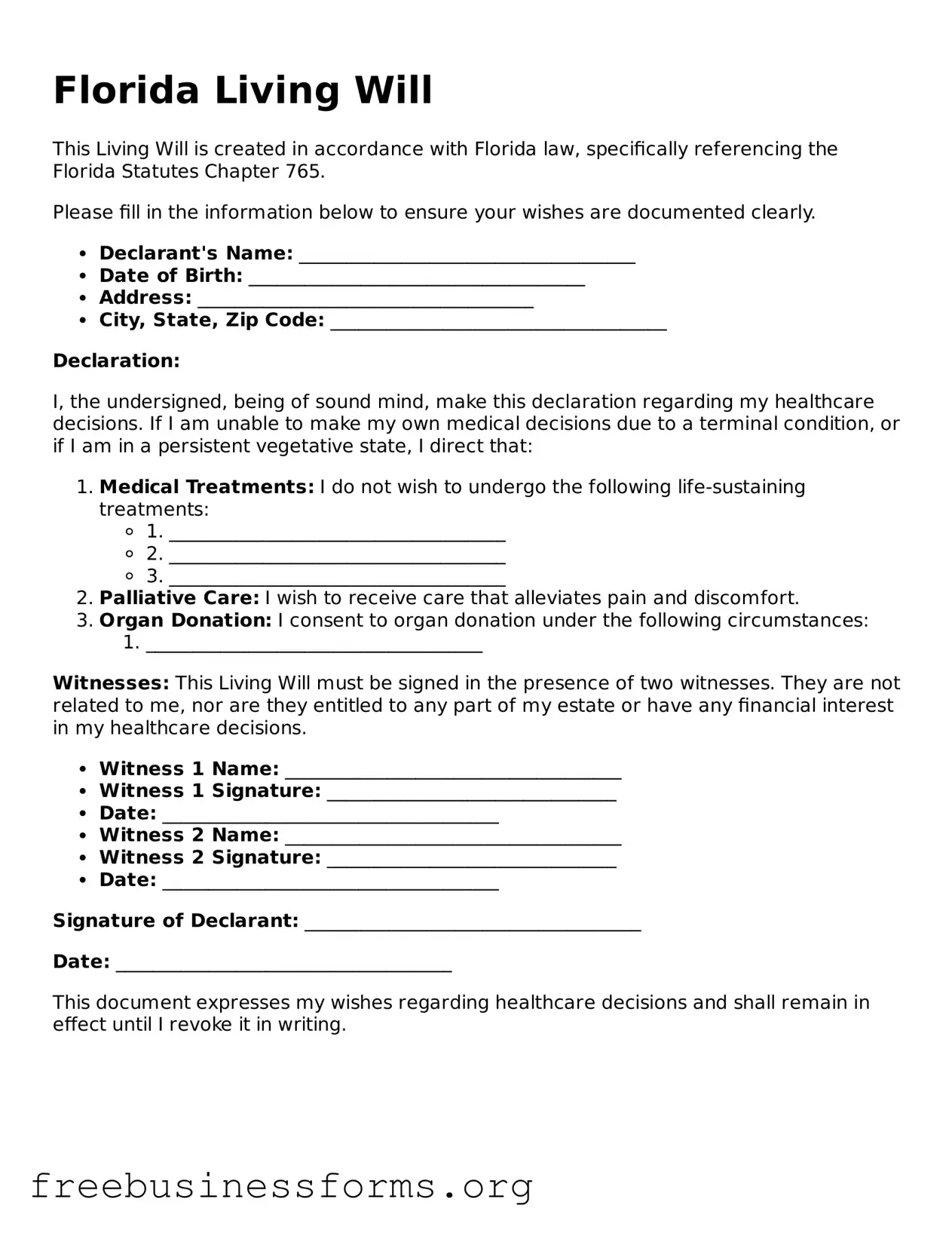Blank Living Will Template for Florida
A Florida Living Will is a legal document that outlines your preferences for medical treatment in the event you become unable to communicate your wishes. This form ensures that your healthcare decisions are respected, even when you cannot voice them yourself. Understanding its importance can help you make informed choices about your future care.
Open Form Here

Blank Living Will Template for Florida
Open Form Here

Open Form Here
or
↓ PDF File
Quickly complete this form online
Complete your Living Will online quickly — edit, save, download.